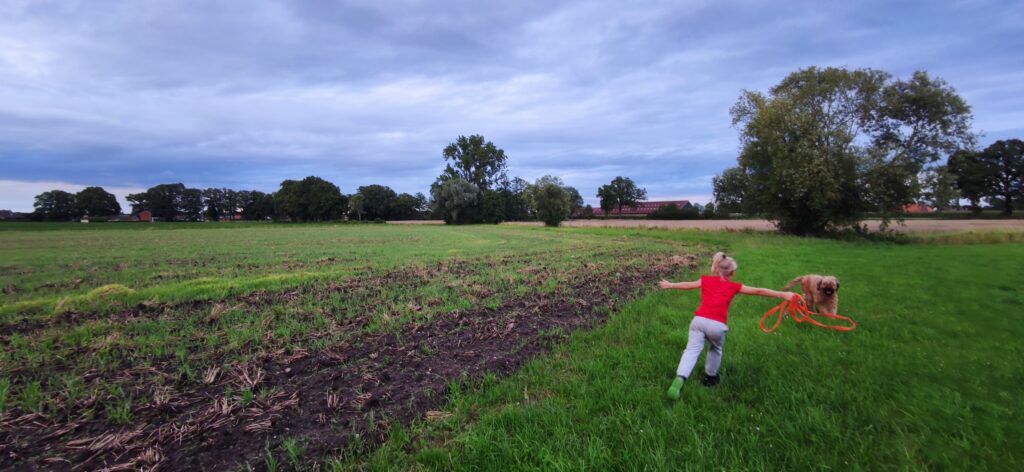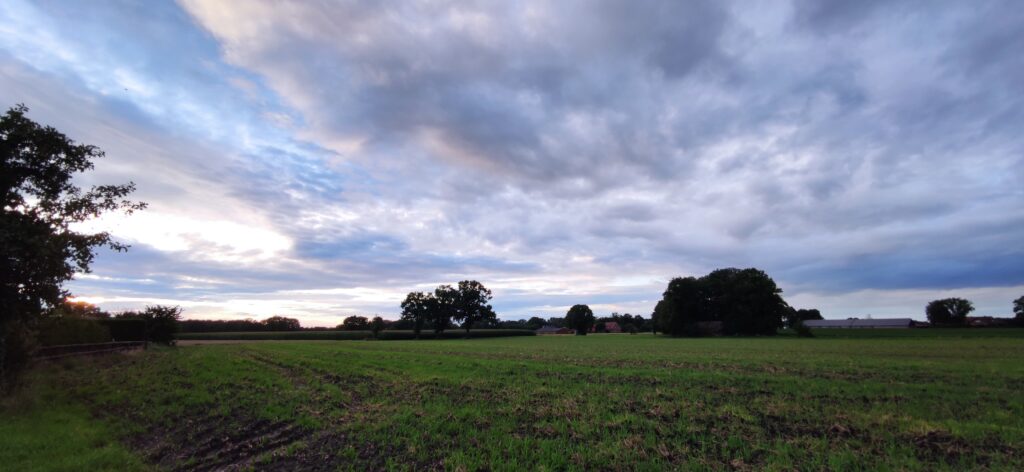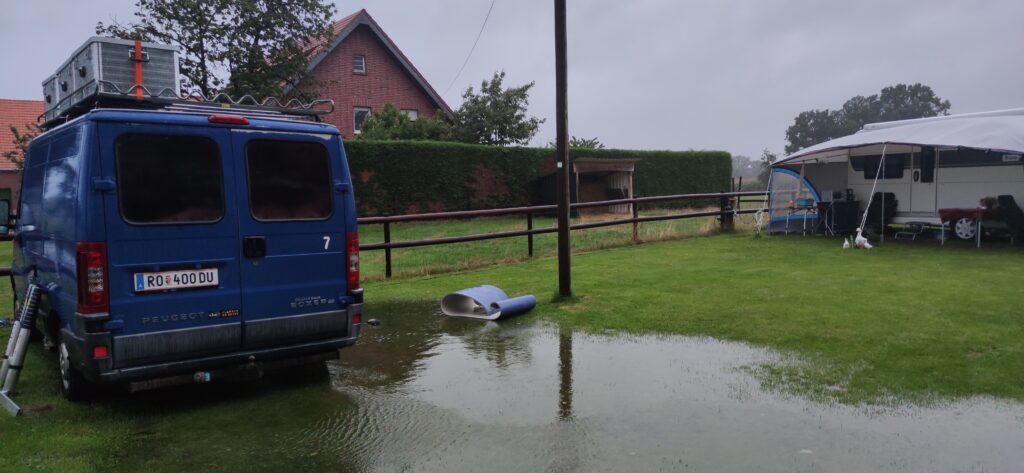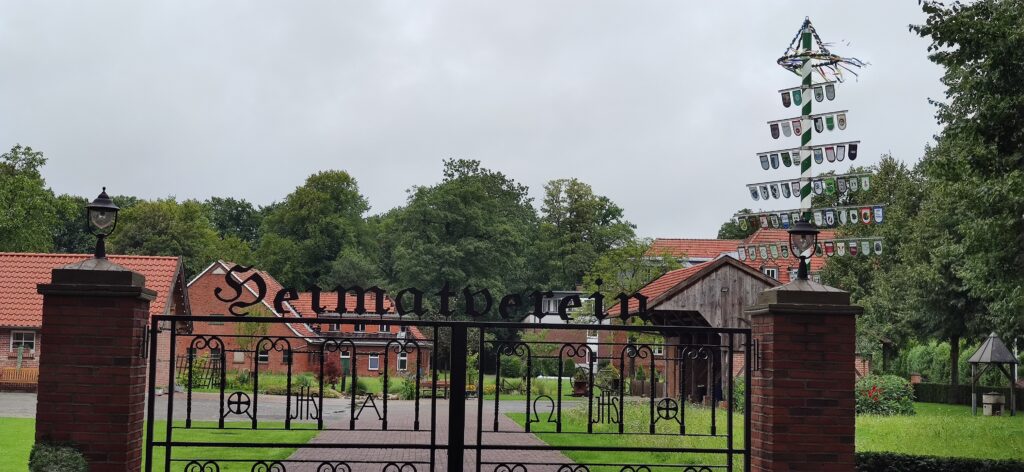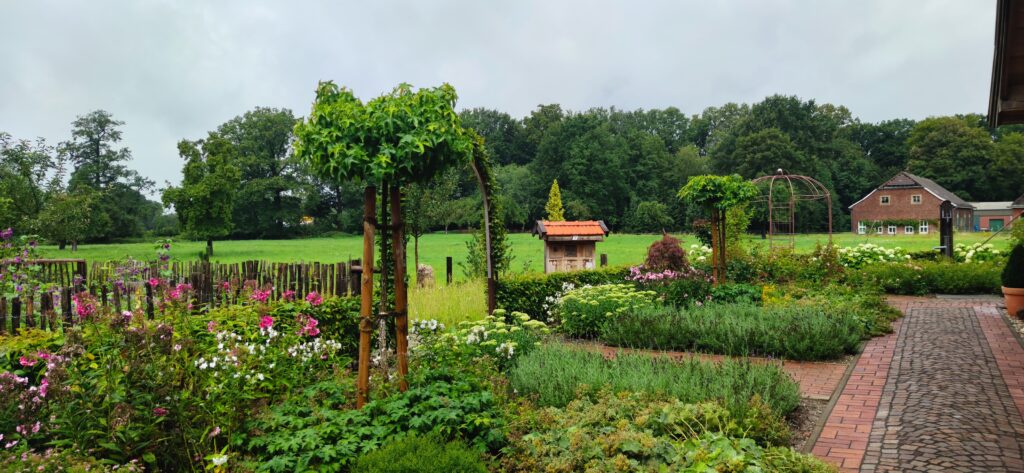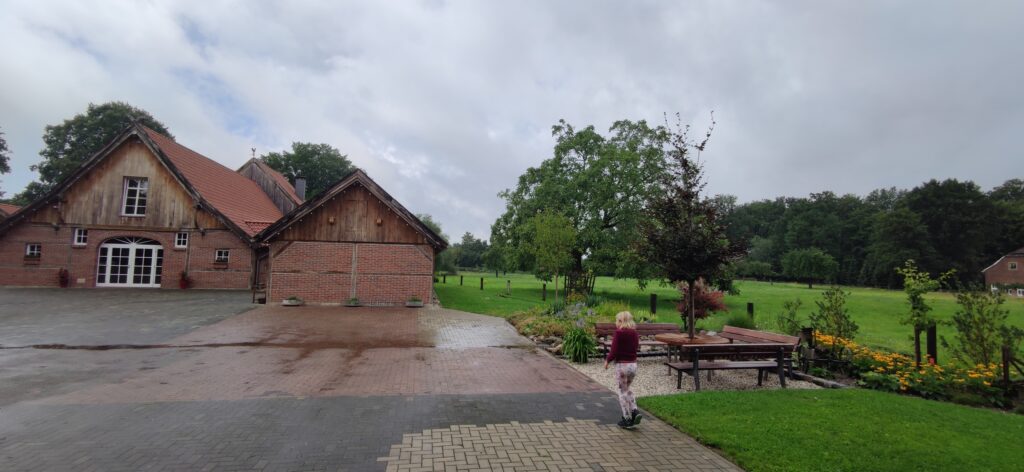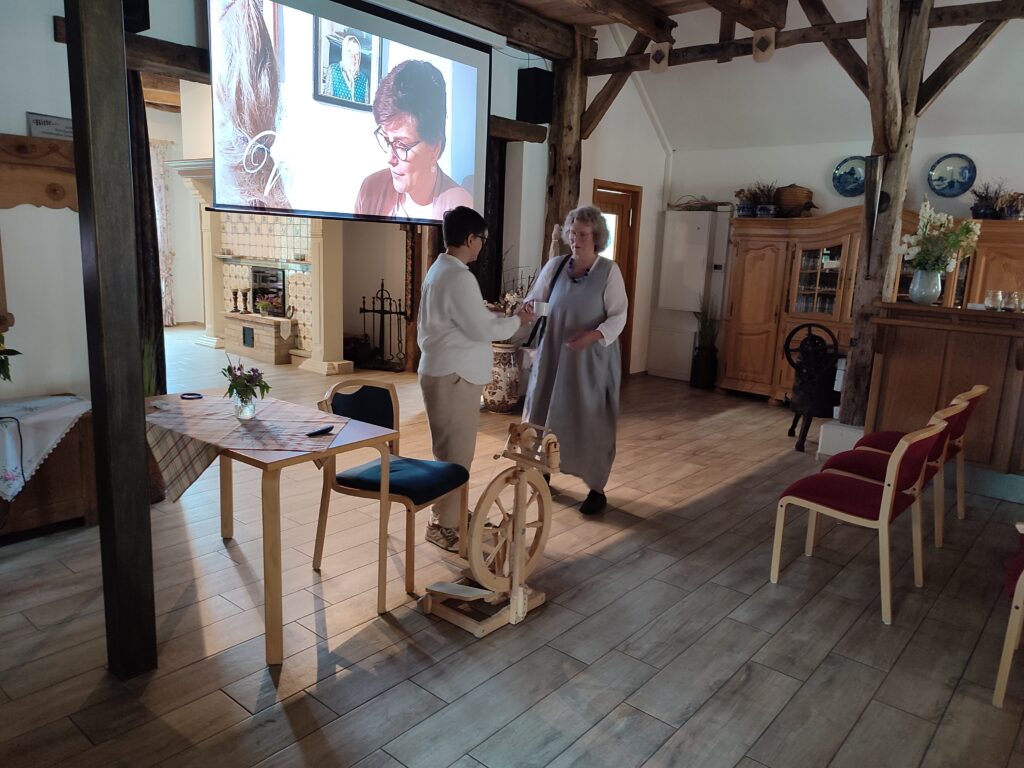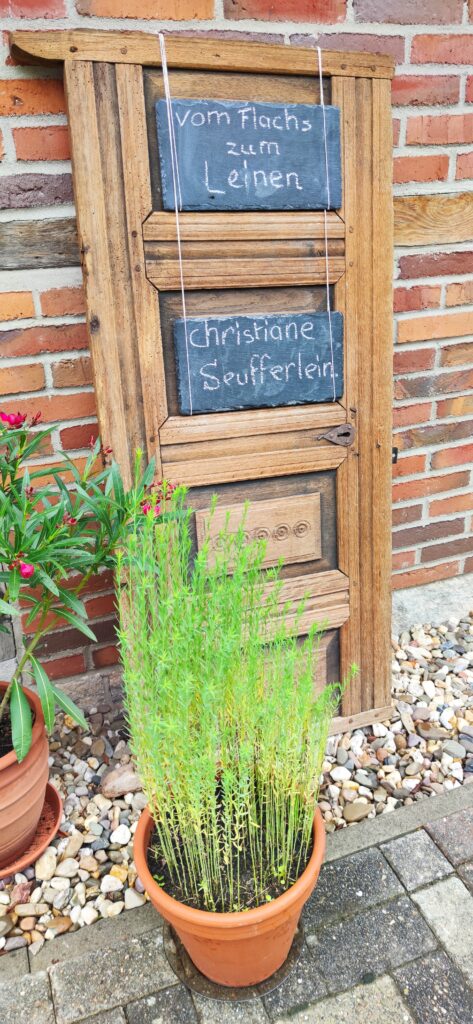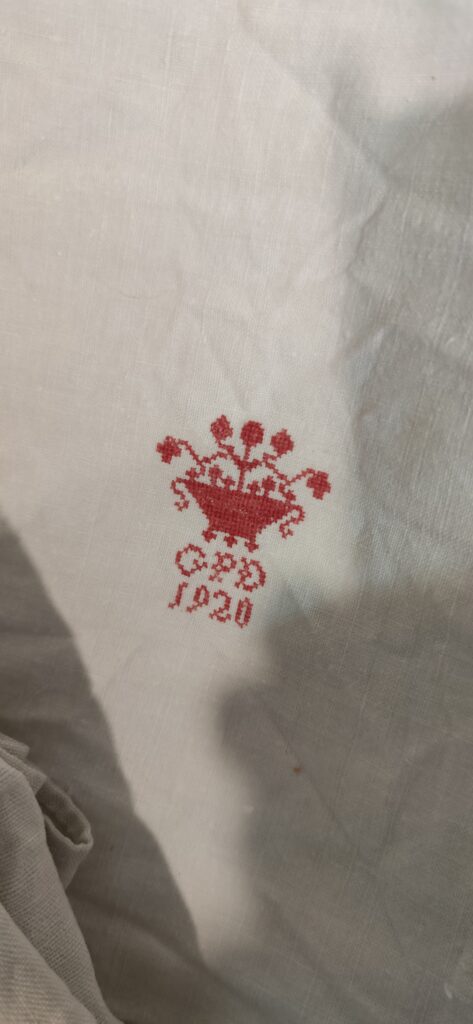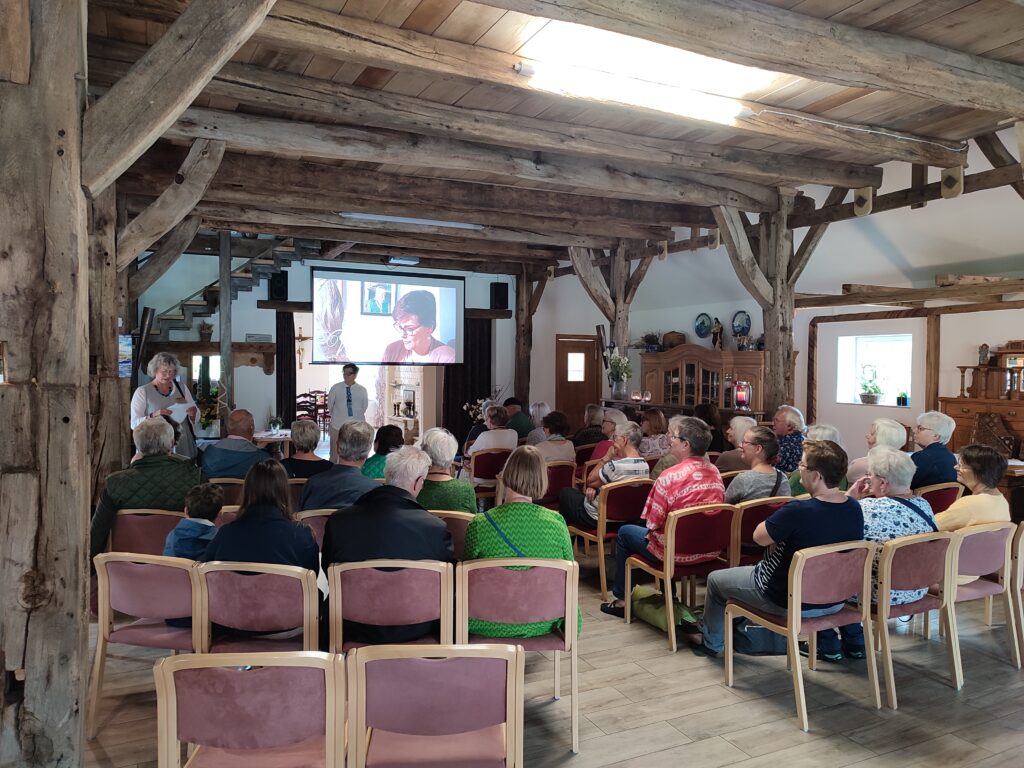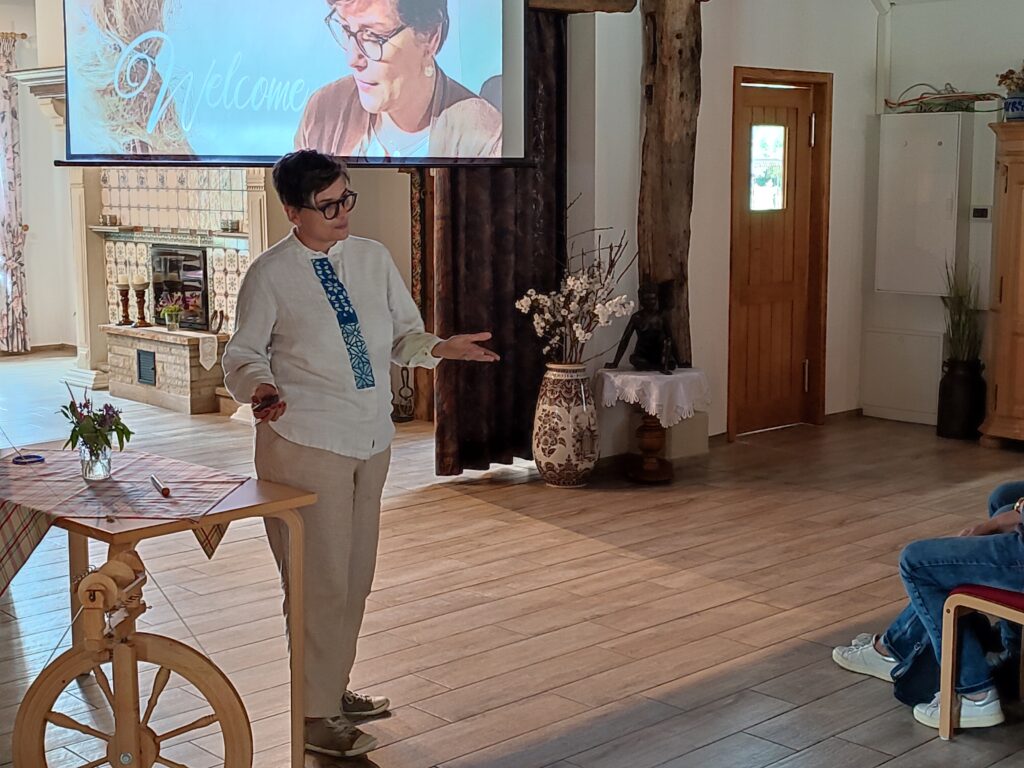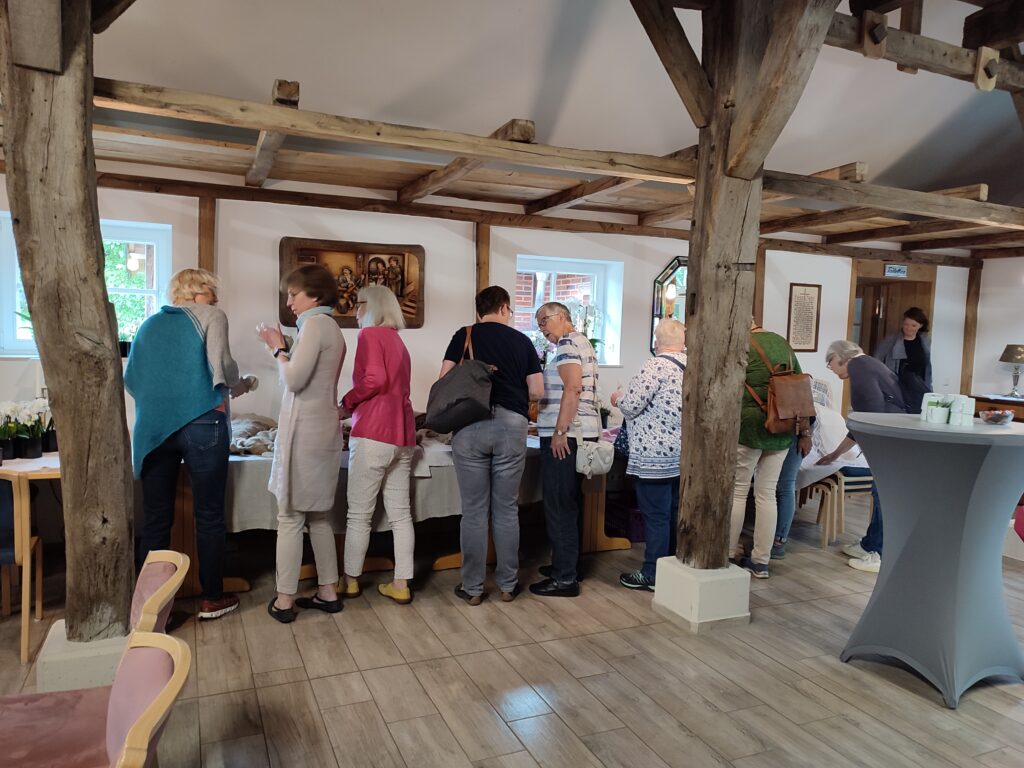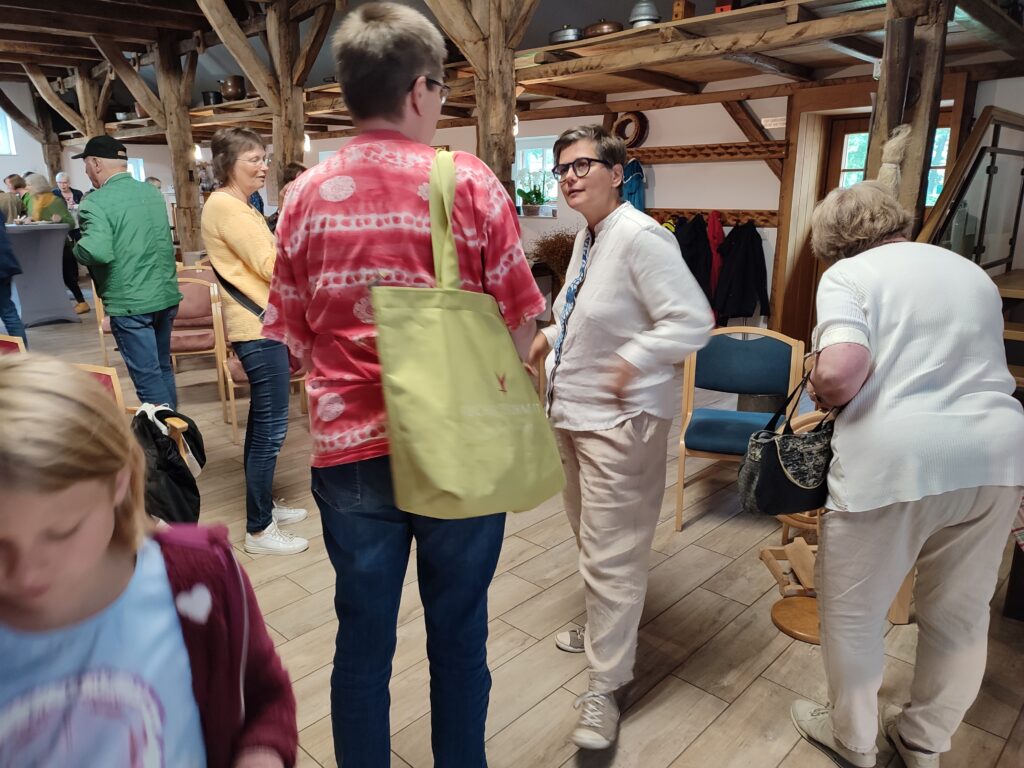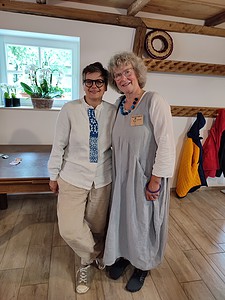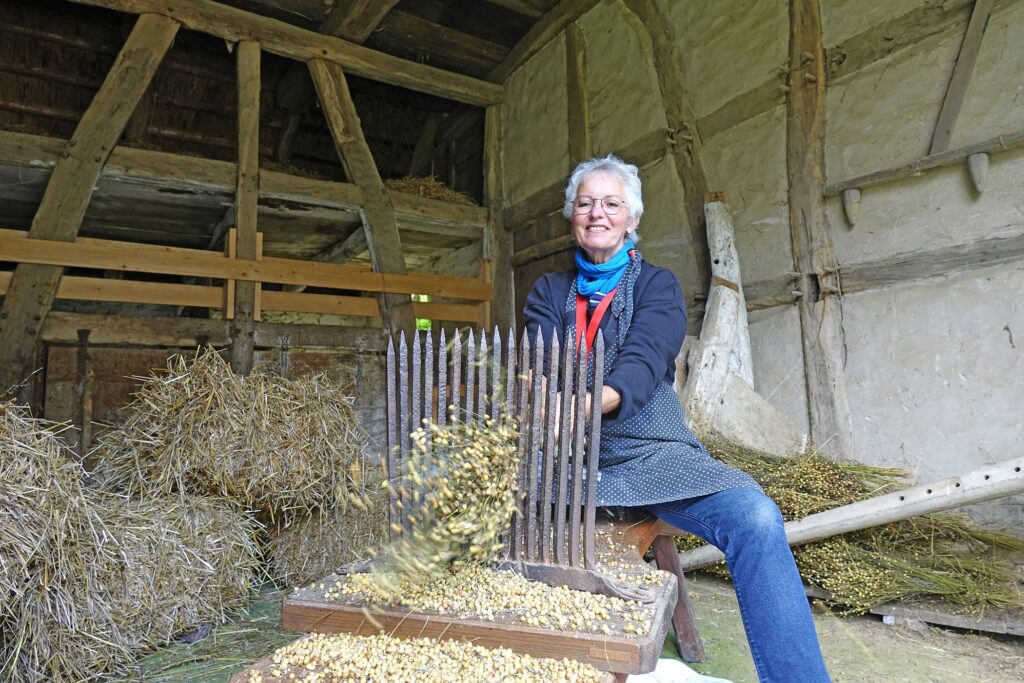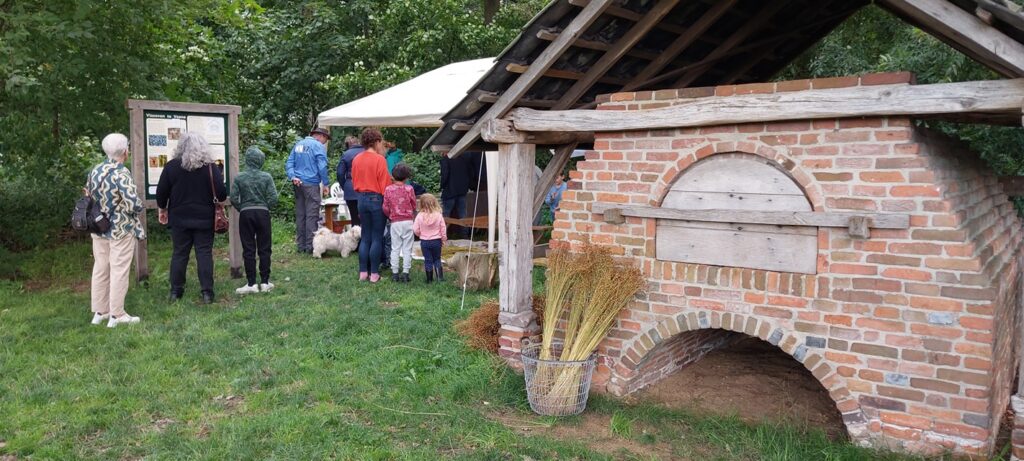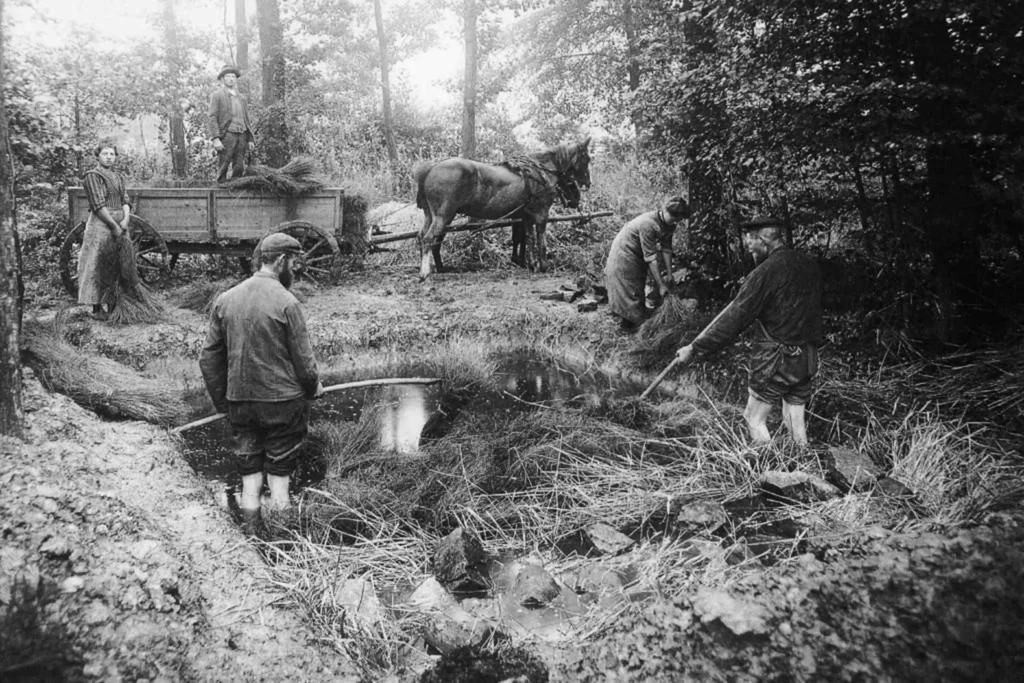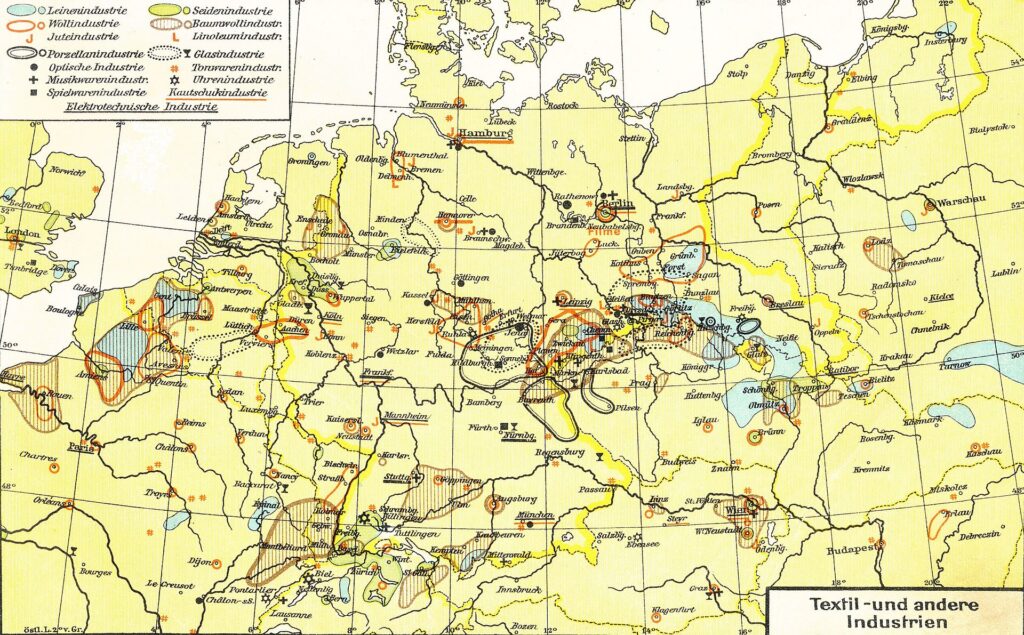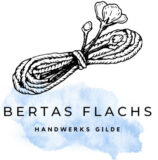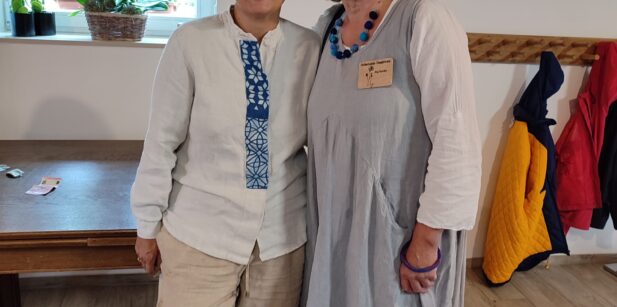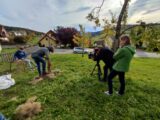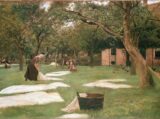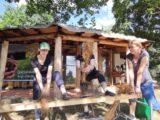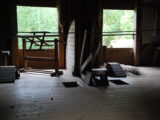Flax accompanies and leads us through half of Northern Europe this August. Being on tour with Berta means meeting lots of wonderful fibre people, getting to know new linen and flax traditions, spending hundreds of kilometres on the road and braving the weather. We already proved this with the weather on the first day. The drive from Julbach to Burlo (800 kilometres, pure driving time 9 hours) was wet. The first night on site still wet and so windy that the roof literally blew off the camp neighbours. A sea had formed around our bus and my feet were already wet at 7am. But what won't you do for the flax.
The name Burlos of this sleepy little town in Münsterland (North Westphalia) goes back to the word Bu(e)r, meaning farmer, the second syllable derives from Loh or Loe and means something like light forest or grove of leaves. The Low Countries are just a stone's throw away and can be reached by bike in 15 minutes across the green border. That's why it was a Dutch woman, Anja Roerdink, who invited me and Berta to Burlo for the lecture. Anja is one of the "Achterhoekse Vlasspinners", who keep the knowledge of flax and its processing alive. They have already launched the "Grow your own square metre of flax again!" campaign three times this spring, giving away seeds for one square metre of flax each time. Thanks to her, flax is being spun again in Germany and the Netherlands.
Rural textile supply
The region of North Rhine-Westphalia was a flax-growing area until well into the 19th century and weaving was already a rural trade in the High Middle Ages. For a long time, however, the production of textiles only served to cover the region's own needs. The Münsterland was largely excluded from the heyday of the wool and linen weaving industry, which Dortmund, Cologne and Soest, for example, experienced in the Middle Ages.
It was different in the Ravensberg region around Bielefeld. Westphalia quickly established itself as one of the centres of German linen cultivation and processing. The most important buyer of Westphalian fabrics was the Netherlands. From here, the goods were exported overseas. From the 16th century onwards, fine linen yarns from Ravensberg were also exported, which were processed in Elberfeld bleaching works and twisting mills and then used in the flourishing lace industry in the Netherlands.
Cheap cotton puts pressure on flax
There was a spinning school for fine yarn in the town of Brakel between 1838 and 1842. It was built with state subsidies and had over 50 students who were trained in fine and later in coarse spinning. From the middle of the 19th century onwards, industrialisation was unstoppable. The following was reported from Brake in 1820: "As heavy as the Napoleonic period had weighed on the countryside, the hardest blow was yet to come to economic life when spinning machines from England began to compete with the industrious spinning hands in 1820 and when linen became fierce competition for cheap cotton goods. An economic crisis arose that brought hardship and misery to many a family in Brake. It also spread to the large farmers, who could no longer get rid of their products or had to sell them at low prices. People were often tired of the hard life here, followed the call to America and emigrated."
Anja also told us that hardly any flax was grown in the region at the beginning of the 20th century, although with a bit of luck you can still buy beautiful old linen.
Flat stove as a traditional saviour
The lecture on Berta's flax was attended by 35 interested people in the Burlo Heimathaus. Spinners, lace makers, textile workers and people interested in handicrafts. Among them were Claudius van 't Westende Meeder and his family, who recently revitalised an old flax kiln from 1825 and is also working to ensure that the history of the region is not forgotten. https://vlasoventeveene.nl/
Thank you Anja, for the invitation and the really nice event in Burlo and the first ideas for a visit of the German/Dutch spinners in the Mühlviertel are already being spun.
